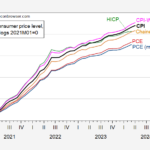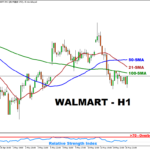
The investment climate will be shaped by three events next week. ECB President Draghi’s testifies before the European Parliament to kick off the week. Fed Chairman Powell speaks to the NY Economic Club in the middle of the week. Presidents Trump and Xi are to meet at the G20 meeting to end the week in hopes of dialing back the escalating trade conflict. Also at the G20 summit, the NAFTA2.0 is expected to be signed, and the steel and aluminum tariffs on Canada and Mexico may be modified (turned into quotas?) shortly.
Draghi speaks a couple of weeks before the next ECB meeting. Market participants may be sensitive to two topics. First is the state of the eurozone economy. The German unexpectedly contracted in Q3, and the flash PMIs suggest weakness has continued Q4. The forward-looking orders data continues to flag weakness that goes beyond the auto sector,
The ECB always has conditioned the end of its asset purchases to the incoming data, but it has been widely understood for the conditionality was for decorum purposes and in fact, the bar to extending net asset purchases into next year was high. Draghi has pinned his optimism to the labor market. This has not changed. At the same time, Draghi recognizes the economy still needs an extraordinary monetary policy, and he can tell the European Parliament that policy will remain easy after the asset purchases are complete. Refi operations are fully allocated at a fixed rate (zero), there are liberal collateral rules, the deposit rate remains at minus 40 bp.
The ECB also emphasizes its forward guidance.The ECB’s pre-commitment not to raise rates until after next summer has been an important stabilizing factor. However, the market’s reaction function is quicker still. Since the start of the month, the implied odds that the ECB will not raise rates until after Draghi steps down next Oct has doubled to over 50% now. The implied yield on the December 2019 Euribor futures contract has fallen by about 15 bp since a fortnight before the October ECB meeting.
In addition to comments on the economy and monetary policy, investors will pay attention to what Draghi, Italy’s former central bank governor says about his country. Draghi is unlikely to demur from the EC’s recommendation to initiate excess deficit procedures against Italy after it refused to substantially alter its budget proposals. It warned that Italy was “sleepwalking into instability.” However, the EU moves slowly, and many observers think investors will investors will exert pressures on Italy. The poor reception to the recent bond sales would seem to bear this out.
However, contrary to expectations, Italian bonds rallied strongly last week. The 10-year yield fell from a high above 3.70% on November 20 to 3.35% ahead of the weekend before settling at almost 3.41%, the lowest close in two weeks. Consider the move at the short-end. The two-year yield peaked near 151 bp on November 20 and fell to almost 82 bp before finishing the week a little more than 95 bp. Italy is back in the market next week with a range of issues, from six-month bills, and 1-year bonds, five-year inflation-linker, and five and 10-year bonds.














